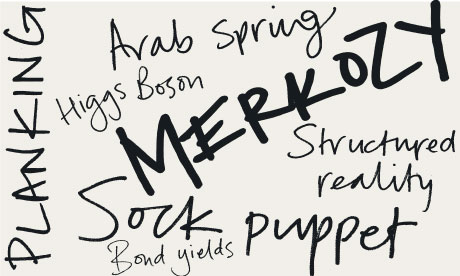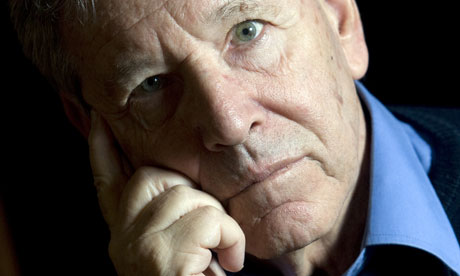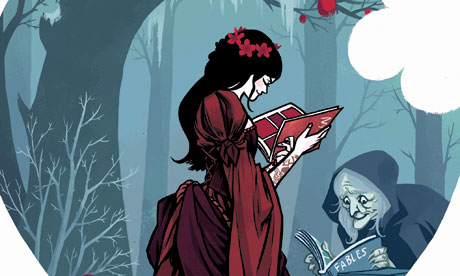EVERYONE knows the stereotypes about foreigners speaking English: Scandinavians are shockingly fluent, while the Japanese lag despite years and billions of yen spent trying. Now a big new study confirms some of those stereotypes. But it holds some surprises as well.
EF Education First, an English-teaching company, compiled the biggest ever internationally comparable sample of English learners: some 2m people took identical tests online in 44 countries. The top five performers were Norway, the Netherlands, Denmark, Sweden and Finland. The bottom five were Panama, Colombia, Thailand, Turkey and Kazakhstan. Among regions, Latin America fared worst. (No African country had enough takers to make the lists’s threshold for the minimum number of participants.)
This was not a statistically controlled study: the subjects took a free test online and of their own accord. They were by definition connected to the internet and interested in testing their English; they will also be younger and more urban than the population at large. But Philip Hult, the boss of EF, says that his sample shows results similar to a more scientifically controlled but smaller study by the British Council.
Several factors correlate with English ability. Wealthy countries do better overall. But smaller wealthy countries do better still: the larger the number of speakers of a country’s main language, the worse that country tends to be at English. This is one reason Scandinavians do so well: what use is Swedish outside Sweden? It may also explain why Spain was the worst performer in western Europe, and why Latin America was the worst-performing region: Spanish’s role as an international language in a big region dampens incentives to learn English.
Export dependency is another correlate with English. Countries that export more are better at English (though it’s not clear which factor causes which). Malaysia, the best English-performer in Asia, is also the sixth-most export-dependent country in the world. (Singapore was too small to make the list, or it probably would have ranked similarly.) This is perhaps surprising, given a recent trend towards anti-colonial and anti-Western sentiment in Malaysia’s politics. The study’s authors surmise that English has become seen as a mere tool, divorced in many minds from its associations with Britain and America.
Teaching plays a role, too. Starting young, while it seems a good idea, may not pay off: children between eight and 12 learn foreign languages faster than younger ones, so each class hour on English is better spent on a 10-year-old than on a six-year-old. Between 1984 and 2000, the study's authors say, the Netherlands and Denmark began English-teaching between 10 and 12, while Spain and Italy began between eight and 11, with considerably worse results. Mr Hult reckons that poor methods, particularly the rote learning he sees in Japan, can be responsible for poor results despite strenuous efforts. (He would say that, as his company sells English-teaching, but it rings true.)
Finally, one surprising result is that China and India are next to each other (29th and 30th of 44) in the rankings, despite India’s reputation as more Anglophone. Mr Hult says that the Chinese have made a broad push for English (they're "practically obsessed with it”). But efforts like this take time to marinade through entire economies, and so may have avoided notice by outsiders. India, by contrast, has long had well-known Anglophone elites, but this is a narrow slice of the population in a country considerably poorer and less educated than China. English has helped India out-compete China in services, while China has excelled in manufacturing. But if China keeps up the push for English, the subcontinental neighbour's advantage may not last.
EF Education First, an English-teaching company, compiled the biggest ever internationally comparable sample of English learners: some 2m people took identical tests online in 44 countries. The top five performers were Norway, the Netherlands, Denmark, Sweden and Finland. The bottom five were Panama, Colombia, Thailand, Turkey and Kazakhstan. Among regions, Latin America fared worst. (No African country had enough takers to make the lists’s threshold for the minimum number of participants.)
This was not a statistically controlled study: the subjects took a free test online and of their own accord. They were by definition connected to the internet and interested in testing their English; they will also be younger and more urban than the population at large. But Philip Hult, the boss of EF, says that his sample shows results similar to a more scientifically controlled but smaller study by the British Council.
Several factors correlate with English ability. Wealthy countries do better overall. But smaller wealthy countries do better still: the larger the number of speakers of a country’s main language, the worse that country tends to be at English. This is one reason Scandinavians do so well: what use is Swedish outside Sweden? It may also explain why Spain was the worst performer in western Europe, and why Latin America was the worst-performing region: Spanish’s role as an international language in a big region dampens incentives to learn English.
Export dependency is another correlate with English. Countries that export more are better at English (though it’s not clear which factor causes which). Malaysia, the best English-performer in Asia, is also the sixth-most export-dependent country in the world. (Singapore was too small to make the list, or it probably would have ranked similarly.) This is perhaps surprising, given a recent trend towards anti-colonial and anti-Western sentiment in Malaysia’s politics. The study’s authors surmise that English has become seen as a mere tool, divorced in many minds from its associations with Britain and America.
Teaching plays a role, too. Starting young, while it seems a good idea, may not pay off: children between eight and 12 learn foreign languages faster than younger ones, so each class hour on English is better spent on a 10-year-old than on a six-year-old. Between 1984 and 2000, the study's authors say, the Netherlands and Denmark began English-teaching between 10 and 12, while Spain and Italy began between eight and 11, with considerably worse results. Mr Hult reckons that poor methods, particularly the rote learning he sees in Japan, can be responsible for poor results despite strenuous efforts. (He would say that, as his company sells English-teaching, but it rings true.)
Finally, one surprising result is that China and India are next to each other (29th and 30th of 44) in the rankings, despite India’s reputation as more Anglophone. Mr Hult says that the Chinese have made a broad push for English (they're "practically obsessed with it”). But efforts like this take time to marinade through entire economies, and so may have avoided notice by outsiders. India, by contrast, has long had well-known Anglophone elites, but this is a narrow slice of the population in a country considerably poorer and less educated than China. English has helped India out-compete China in services, while China has excelled in manufacturing. But if China keeps up the push for English, the subcontinental neighbour's advantage may not last.






